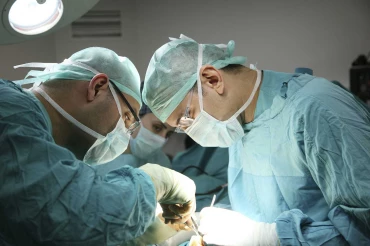What Do I Need To Prove Medical Malpractice?

If you feel that you have been the victim of malpractice, you will likely want to file suit against the doctor or medical professional responsible for the negligence. One of the first things you may ask is, “What will I have to prove?” In a malpractice case, it generally comes down to proving that your doctor or other medical professional was negligent in your medical treatment, and that you suffered harm or injury as a result. It sounds rather simple, but medical malpractice cases are actually quite complicated and they require legal and medical knowledge to be able to prove that negligence occurred.
You Must Prove That A Doctor-Patient Relationship Existed
The first thing that has to be addressed is that there was, in fact, a doctor-patient relationship. This component of a medical malpractice case is easily proven and rarely disputed. Basically, proving a doctor-patient relationship tells the court that the doctor had an obligation to provide you with competent care. A doctor-patient relationship existed if the doctor agreed to provide you with some type of diagnosis or treatment.
You Must Prove That The Care You Received Was Negligent
In order to prove that the doctor who treated you was negligent in your diagnosis or manner of treatment, the court will consider whether or not the doctor violated the medical standard of care. The “medical standard of care” is defined as the level and type of care that a reasonably competent and skilled health care professional, with a similar background and in the same medical community, would have provided under the circumstances that led to the alleged malpractice. Proving that your doctor did not meet the medical standard of care in your case is essential to a medical malpractice lawsuit.
In most malpractice lawsuits, it is necessary for expert witnesses – doctors or other medical professionals – to provide testimony as to what a competent and reasonably skilled doctor would have done under the same circumstances. Usually, an expert witness is called by both the plaintiff and the defendant’s side to testify to this matter. After explaining what a competent doctor would have done, the expert witness will apply the standard of care to the actual care that you received, and show how your doctor failed to provide you with that level of care.
The expert witness is able to contrast what should have been done to what was actually done, showing the doctor’s liability for medical negligence.
You Must Prove That The Negligence Caused Injury To The Patient
A medical malpractice case cannot be won by just proving that your doctor was negligent and failed to provide you with the accepted standard of care. You also have to prove that his or her negligence caused you harm or injury. You must prove that your condition worsened, or you suffered additional medical issues due to the actions (or failure to act) of your doctor. Again, an expert witness is typically used to explain how your additional medical issues were a direct result of your doctor’s negligence.
You Must Present Proof Of The Damages Incurred
Lastly, you have to provide the court with details of the harm (or damages) you suffered due to the malpractice. Damages often include the amount of wages you have lost or will lose due to not being able to work, and any additional medical costs you have incurred due to the negligence. Plaintiffs are also usually entitled to compensation for pain and suffering (both physical and emotional) that the malpractice has caused.
You Must Prove All Elements By A Preponderance Of The Evidence
In a medical malpractice lawsuit, you must prove all of the elements of the case “by a preponderance of the evidence.” That means that each element is more likely than not to be true. This is a lesser standard to meet than in other kinds of trials, but it is still a very complicated and complex undertaking for plaintiffs. Medical malpractice victims are best represented by qualified, knowledgeable malpractice attorneys who are familiar with the laws and regulations regarding medical care.
At Ross Feller Casey, we are prepared to represent you in your medical malpractice lawsuit. We have three Ivy League educated and trained doctors (two of whom as also lawyers) right on staff who can review medical records and help guide the case from start to finish. We have attorneys who specialize in medical malpractice cases and know all of the ins and outs of medical regulations and laws.
If you have been a victim of medical malpractice, or you think you may have, please contact one of our malpractice attorneys for a free evaluation of your case. At Ross Feller Casey, all malpractice cases are handled on a contingency basis, so you are not charged until a financial recovery is made in your case.
Disclaimer: Ross Feller Casey, LLP provides legal advice only after an attorney-client relationship is formed. Our website is an introduction to the firm and does not create a relationship between our attorneys and clients. An attorney-client relationship is formed only after a written agreement is signed by the client and the firm. Because every case is unique, the description of awards and summary of cases successfully handled are not intended to imply or guarantee that same success in other cases. Ross Feller Casey, LLP represents catastrophically injured persons and their families in injury and wrongful death cases, providing legal representation in Pennsylvania and New Jersey.





